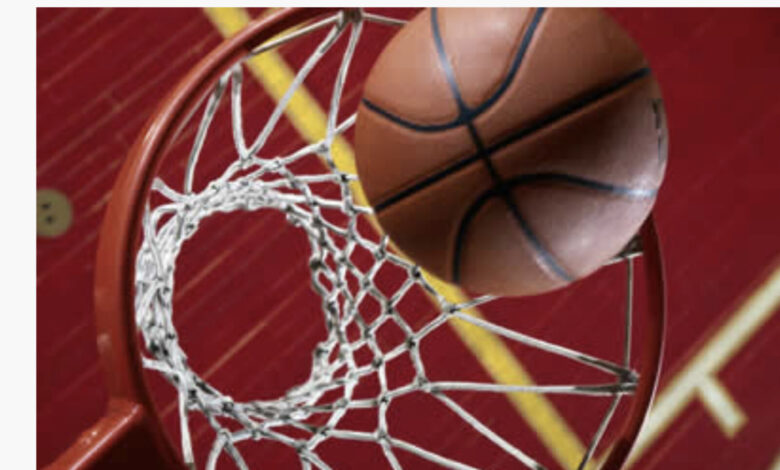COLLEGE BASKETBALL’S REVOLVING DOOR

Something bad has happened to college basketball. No, it’s not the three-pointer or the lack of playing defense. It’s the transfer portal, and in my opinion, it’s not good for schools, players, or fans. It’s happened to college football, too, but it doesn’t seem to have quite the impact it has had on basketball. Football teams have 22 players (11 on offense, 11 on defense) that play actively in a game. A basketball team has only five involved at one time. Thus, the transfer portal has 4 to 5 times the impact on a basketball team that it does a football team. If three basketball starters transfer, 60% of the team must be replaced. If three football starters leave, the impact is significantly less.
The transfer portal is a recent phenomenon, and it has amplified and obviated player discontent. Not only that, it has exposed athletes as very self-centered, almost narcissistic people. Many, if not most, college athletes have dreams of playing professionally and earning millions of dollars. They constantly hear how gifted they are athletically, and their egos become inflated exponentially. Media hype and over-attention change them into characters who lose their sense of self. Their self-assessment is altered, and they think they are bigger and better than they really are. The National Collegiate Athletic Association (NCAA) has fanned the flames of this situation, first, by allowing college athletes to be paid for the use of their “name, image, and likeness (NIL)” and second, by permitting them to transfer schools without penalty.
One recent glaring example is the University of Colorado football team. The Buffaloes were 1-11 in their ‘22 season and after that debacle hired Deion Sanders to be head coach. Eighty-six scholarship players were on ‘22 team. When Sanders took over as coach, 46, yes, 46, players entered the transfer portal and 41 of them left the team. Of last year’s 22 starters on offense and defense, only one player remains. Commitment to school and team evaporated so Coach Sanders and the University of Colorado had to start from scratch and recruit a whole new team. Success has been slow in coming for Colorado.
On the “name, image, and likeness” front, is the overexposure of 2022 Heisman Trophy winner and University of Southern California QB, Caleb Williams. He has been in commercials for Dr. Pepper, Wendy’s, and an un-named airline, and is quoted as earning $2.6 million from the exposure of his “NIL.” Amazing and Outrageous! He doesn’t need to play a single down in the NFL making money like that!
Big name college athletes are not your typical tuition-paying, study-all-night, sleep-deprived college students. They are professionals paid to represent the university on the court or the field who enjoy free tuition and relaxed academic standards. Behavioral expectations are less restrictive, too, as shown by the arrest of IU basketball player, Mackenzie Mgbako. Despite two misdemeanor arrests, he was still allowed to represent IU by playing an exhibition game with no apparent consequences. There may be some later, but as of now, no punishment has been imposed.
Pundits in the media and sports world for years have been calling for college athletes to be paid and be given a pass academically and behaviorally. Our current state of affairs is a result of those demands. I don’t see it as making things better, but instead, chaotic. From one season to the next, the players on your alma mater’s team are all changed. It takes some getting used to for fans, and affects team “chemistry.” For one player to earn $2.6 million while his teammates earn nothing has to be a bit grating to the “unpaid.” Charity only goes so far until jealousy appears and relationships are affected.
I love college basketball and football, but I think the transfer portal and name, image, and likeness issues are having bad effects. Transferring schools should be more restrictive and there should be a cap on NIL payments. Both need oversight and strict guidelines imposed by the NCAA. Maybe they already have this in place; I don’t know. But if they don’t, they should because bidding wars between schools for the services of some athletes could get ugly. College athletics are amateur sports. They need to stay that way and leave money out of the equation. Money still causes problems, especially when one gets a lot and others get nothing, or very little.
The issue of Commitment is important, too. In today’s society we see a lack of it everywhere— in relationships, marriages, careers, and college sports teams, to name a few. Any more, making a commitment seems to be very hard, and abiding by it even harder. The transfer portal concept says commitment is unimportant, and what you want for your self and your ego is more important. That’s a bad message for young adults.
College athletics does have some major issues that need to be resolved before a player walks off in the middle of a game. Egos need to deflate, commitment needs to be reestablished, and the sense of team and fellowship need to be embraced. Otherwise, college athletic teams will become unstable, and athletes will get completely out of control. Hopefully college athletics will deal with this appropriately and not allow the issues that are affecting academics to creep in.




Right on the point this time Bil. You struck the nail on the had. Somebody needs to strike the NCAA on the head. The NCAA has lost control.
This article says it all. You are so right, Bill.
Commitment is the key.
Agree